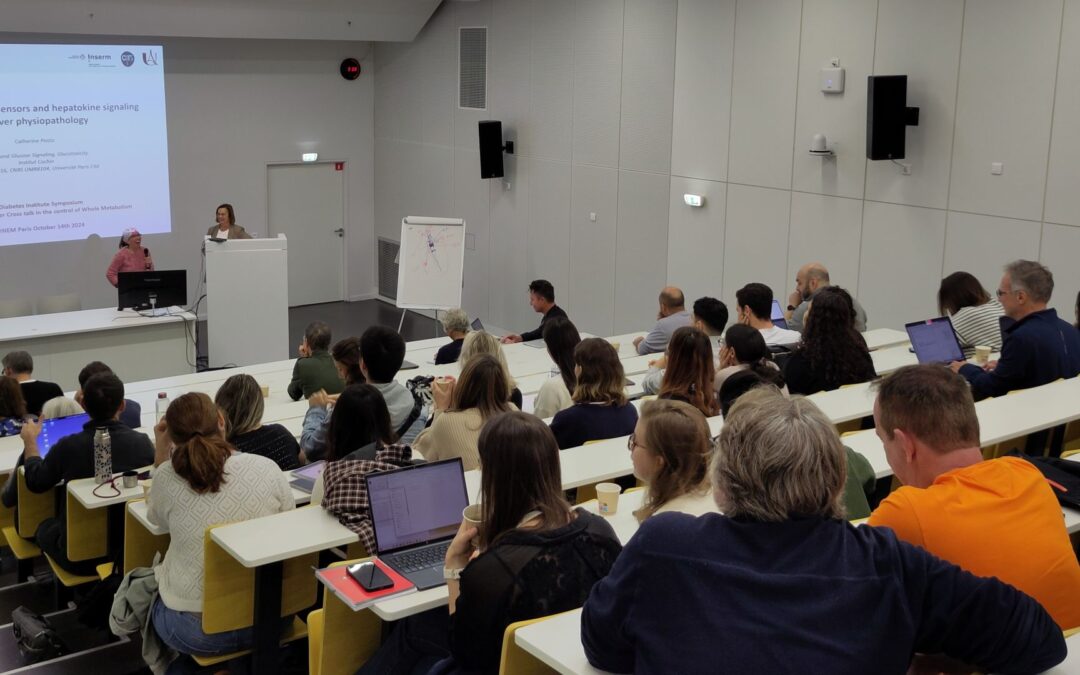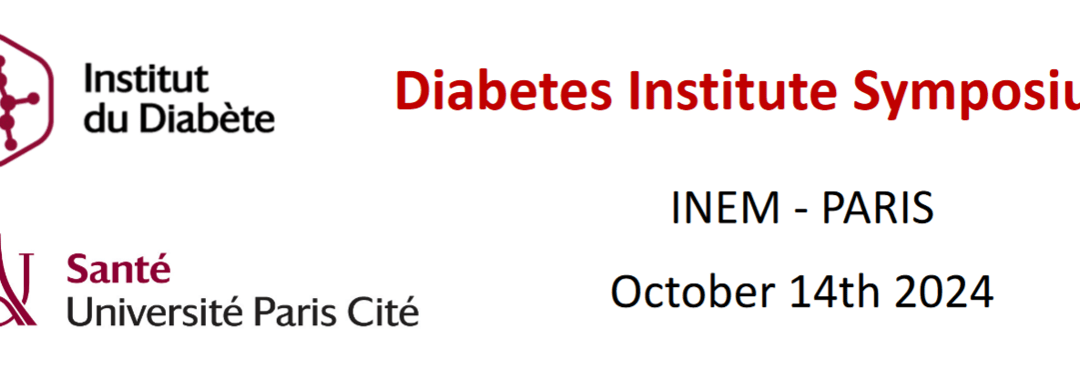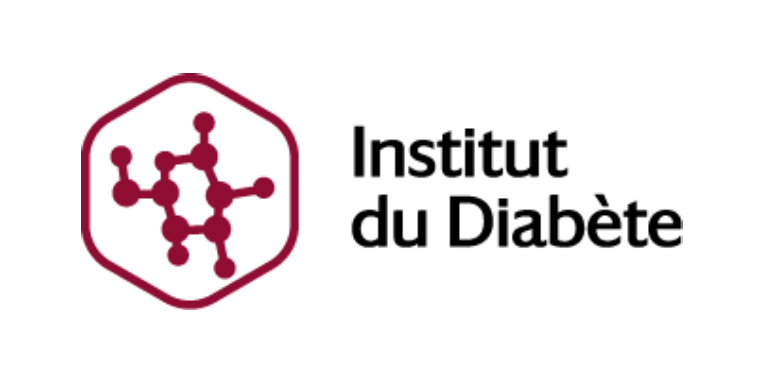Immunology of Diabetes
Our research focuses on the role of adaptive and innate immune cells in type 1 (T1D) and type 2 (T2D) diabetes/obesity and genetics of diabetes to understand disease mechanisms, discover biomarkers and develop therapeutic strategies.
PI: Agnès LEHUEN

© : Sandrine Luce, Christian Boitard, Agnès Lehuen
The specific objectives are:
– Determine the role of innate T lymphocytes in the regulation of T1D. NKT and MAIT cells are unconventional T cells that act as sensors of metabolic abnormalities. These innate-like T cells can regulate both innate and adaptive immunity. Our data demonstrated the efficiency of NKT and MAIT cells in preventing T1D.
– Determine the role of innate T lymphocytes in the regulation of T2D, obesity and non-alcoholic fatty liver disease. We have shown that in patients and mouse models, T2D and obesity induce alterations in MAIT cells, and high levels of inflammatory cytokines in adipose tissue. With our collaborators, we have shown that MAIT cells are profibrogenic in the liver of cirrhotic patients associated with non-alcoholic steatohepatitis (NASH).
– Develop “humanized” murine models that more closely mimic human T1D and understand the role of co-stimulation pathways in autoimmune activation against a given self-tissue. Such models are crucial for the initiation of clinical trials exploring vaccination strategies with cell antigens aimed at restoring immune tolerance.
– Identify genetic factors involved in the diversity of juvenile-onset diabetes, ranging from multifactorial T1D to monogenic forms of diabetes whose clinical presentation may be atypical or not.
Read more

Post Doctoral Position
Fully funded 2-year Post-doctoral position in the team of Dr. Ralf JOCKERS, at Institute Cochin

2024 Scientific Annual Day of the Diabetes institute
On Monday, October 14th, the annual Diabetes Institute Scientific Day took place, bringing together around 100 participants at the INEM. Opening of the Annual Scientific Day of the Diabetes Institute Maude LE GALL - Co-Director of the institute (left) Catherine POSTIC...

Diabetes Institute scientific day
The overall goal of this Diabetes Institute scientific day is to provide the most important and up-to-date research in the field of metabolism made at University Paris Cité. The workshop will focus on understanding the recent progress in adipose tissue and liver biology including metabolic and inflammatory processes in the control of the energy homeostasis. Special emphasis will be done to highlight the importance of the organ crosstalk and how signaling pathways in one tissue could affect the metabolism in other tissue.

Les jeunes de l’IHM seront à l’EASD
L’IHM Diabète est heureux d’aider les jeunes à participer à l’EASD en leur attribuant une bourse de 1000€
Rendez-vous en Septembre à Madrid !
